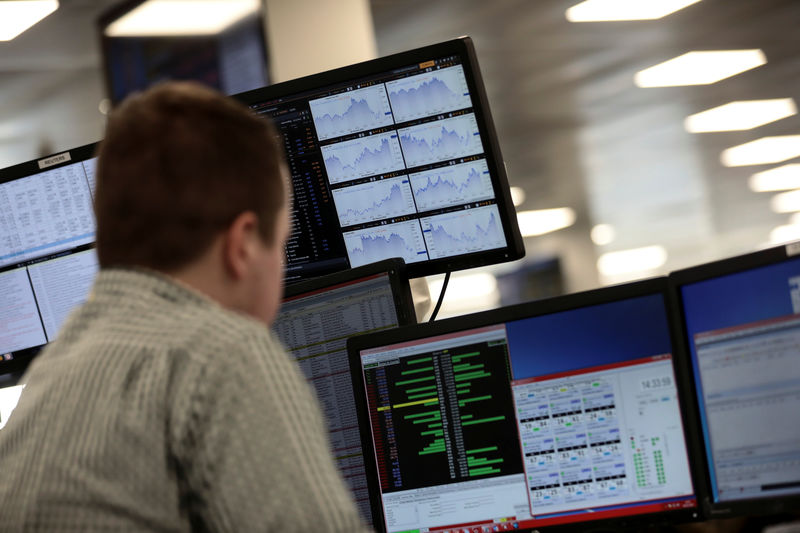By Shashwat Awasthi and Muvija M
(Reuters) - Britain's mid-cap index surged nearly 2% on Friday as hopes grew that a Brexit deal may be clinched by the end of the month, while a rally in blue-chip financial stocks and housebuilders helped the FTSE 100 reverse earlier losses.
The FTSE 250 (FTMC) jumped 1.9% and was on course for its best day since January by 0953 GMT. The Dublin bourse (ISEQ), often considered a barometer of Brexit sentiment, surged 2.1% to its highest since July.
The JP Morgan index that follows UK-listed companies making their money at home soared 4.6% and was on track for its best day since the basket was created nearly three years ago.
After nearly three years of chaotic negotiations, signs that a divorce deal could finally be nailed down were enough to push London-listed companies with exposure to the domestic economy to a premium over the FTSE 100 (FTSE) for the first time since May.
The exporter-heavy FTSE 100 lagged the domestically-focussed mid-caps and missed out on a trade sentiment-induced rally in global stocks as sterling firmed after Ireland sounded optimism on the chances of Britain leaving the European Union in an orderly fashion.
But the index still managed to overcome earlier losses and edge 0.3% higher, led by homebuilders Persimmon (L:PSN), Barratt (L:BDEV), Berkeley (L:BKGH) and Taylor Wimpey (L:TW) that jumped between 5.6%-7.1%.
Financial stocks were also boosted by Brexit optimism, with RBS (L:RBS) up 8%, its biggest one-day rise in more than five years, and Lloyds (L:LLOY) surged 7% to track its best day since June 2016.
However, CMC Markets analyst Michael Hewson cautioned that optimism "needs to be tempered" and warned that the upbeat sentiment could be short-lived, "with any progress likely to be as elusive as the pot of gold at the end of the rainbow".
"This pathway to a deal could well be a road to nowhere," Hewson said.
"UPLIFTING"
The broader sentiment was upbeat after U.S. President Donald Trump stirred hopes of a trade agreement with China, calling the first day of talks "very good".
"We're enjoying a much more uplifting end to the week as traders see cause for optimism in the two painful negotiations that have gripped markets in recent years," Oanda analyst Craig Erlam said.
The FTSE had confirmed a "Death Cross" pattern in the previous session as its 50-day moving average (DMA) crossed below the 200 DMA, a technical pattern usually seen as a warning that more losses are likely in the near term.
A notable blemish on the main index was a 4.2% drop in ad firm WPP (L:WPP) after French rival Publicis (PA:PUBP) cut its sales view for the second time.
Luxury brand Burberry (L:BRBY), which advanced in the previous session on a positive read-across from LVMH (PA:LVMH), slipped 3.4% after German rival Hugo Boss (DE:BOSSn) cut its annual forecast.

AIM-listed Dart Group (L:DTG) surged 15% after the owner of British airline and tour operator Jet2 raised its annual profit view and said it had seen stronger demand for some products since Thomas Cook collapsed.